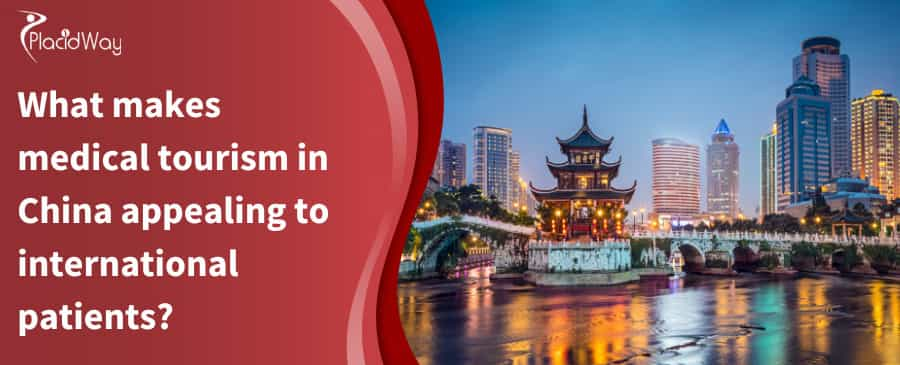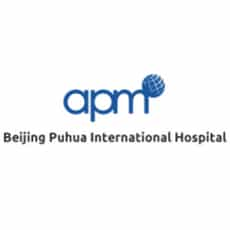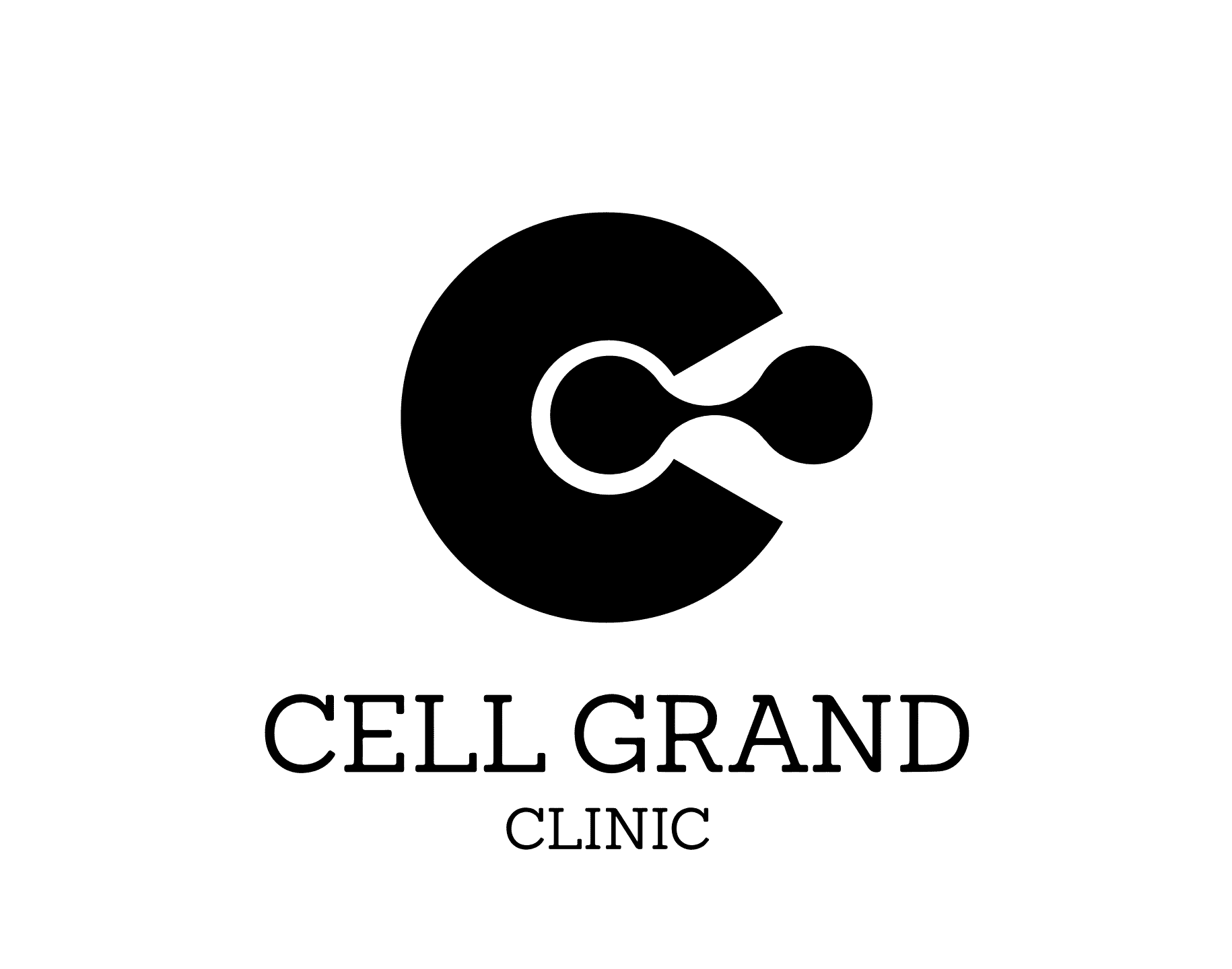Medical Tourism in China Becomes Attractive to Foreign Patients

When you think about traveling for medical care, you might picture destinations known for their pristine beaches or bustling cities. But what if a country could offer you world-class medical treatment, cutting-edge technology, and a rich cultural experience all in one? That's the growing appeal of medical tourism in China. For years, patients from around the globe have been quietly discovering the benefits of seeking healthcare in this dynamic nation. It's a place where ancient healing traditions meet state-of-the-art medical advancements, creating a truly unique healthcare landscape.
The allure of China as a medical destination isn't just about one single factor. It's a compelling blend of affordability, quality, and accessibility that's hard to find elsewhere. Imagine getting a complex surgical procedure for a fraction of what it would cost back home, without compromising on the quality of care. Picture a recovery process that includes not just standard medical follow-ups, but also holistic therapies that have been refined over thousands of years. This combination of cost-effectiveness, advanced medical expertise, and the unique offering of Traditional Chinese Medicine (TCM) is what makes China an increasingly attractive option for international patients seeking everything from cancer treatment to Stem cell therapy in China. It's a journey that promises not just healing, but also a chance to experience a culture that has long prioritized health and wellness.
What are the main advantages of medical tourism in China?
China has emerged as a formidable player in the global medical tourism market by offering a compelling value proposition. The most significant draw is the cost. Patients can often receive treatments for 30-70% less than in the United States or Europe. This isn't about cutting corners; it's a reflection of the lower operational costs in China. This affordability makes a wide range of procedures, from complex surgeries to elective treatments, accessible to a broader audience.
Beyond the price tag, the quality of care is a major factor. Many of China's top hospitals are JCI (Joint Commission International) accredited, which is the gold standard for healthcare quality and patient safety. These facilities are staffed by highly trained, often internationally educated, medical professionals. Furthermore, the integration of Traditional Chinese Medicine (TCM) offers a holistic approach to healing that you won't find in many Western countries. This blend of ancient wisdom and modern science provides patients with a comprehensive and personalized treatment experience.
How much cheaper is medical treatment in China compared to Western countries?
The cost difference is one of the most compelling reasons to consider medical tourism in China. To put it in perspective, a procedure that might cost $50,000 in the U.S. could be as low as $15,000 to $20,000 in a top-tier Chinese hospital. This isn't limited to just one type of treatment. The savings extend across a wide range of medical services.
Here's a general comparison of potential costs:
- Knee Replacement: Can be up to 60% cheaper.
- Stem Cell Therapy: Potential savings of 50-70%.
- Dental Implants: Often 70% or more affordable.
- Cosmetic Surgery: Significant savings on procedures like facelifts and rhinoplasty.
These cost advantages are due to a combination of factors, including lower labor costs, government regulation of healthcare prices, and a competitive market. For many international patients, these savings mean they can afford necessary treatments that would be out of reach in their home countries.
What is the quality of healthcare in Chinese hospitals?
There's a common misconception that lower cost means lower quality, but that's not the case with medical tourism in China. The Chinese government has invested heavily in its healthcare infrastructure, and as a result, the country boasts numerous world-class medical facilities. The presence of JCI accreditation in many hospitals is a testament to their commitment to meeting global standards of patient care and safety.
These hospitals are not just buildings; they are centers of excellence. They are home to some of the brightest medical minds, many of whom have trained and worked in leading institutions across the globe. This international exposure ensures that the latest medical protocols and best practices are implemented. Patients can expect a level of care that is on par with what they would receive in the best hospitals in their home countries.
Are Chinese hospitals equipped with modern technology?
China is at the forefront of technological innovation, and its healthcare sector is no exception. The country's leading hospitals have made significant investments in acquiring the latest medical technologies. This commitment to innovation means that international patients have access to some of the most advanced diagnostic and treatment options available anywhere in the world.
The use of advanced technology translates to more precise diagnoses, less invasive procedures, and better patient outcomes. For example, robotic-assisted surgery allows for greater precision and smaller incisions, leading to faster recovery times. The availability of advanced cancer therapies like proton therapy provides a more targeted and effective way to treat tumors while minimizing damage to surrounding healthy tissue. This focus on technology is a key reason why medical tourism in China is attracting patients with complex medical needs.
What is Traditional Chinese Medicine (TCM) and why is it popular?
Traditional Chinese Medicine (TCM) is one of the most unique aspects of seeking healthcare in China. It's a complete medical system with its own theories, diagnostic methods, and treatment modalities. The core principle of TCM is to restore balance and harmony within the body. It views the body as an interconnected system, and illness is seen as a result of an imbalance in the body's vital energy, or "qi."
The popularity of TCM lies in its holistic and patient-centered approach. Instead of just treating symptoms, TCM practitioners aim to identify and address the underlying cause of a health issue. This approach resonates with many patients who are looking for more than just a quick fix. They are drawn to the idea of a medical system that considers their physical, mental, and emotional well-being.
What are the most popular TCM treatments for medical tourists?
Medical tourists are increasingly seeking out TCM for a variety of health concerns. Here are some of the most sought-after treatments:
- Acupuncture: This ancient practice involves inserting thin needles into specific points on the body to stimulate the flow of qi. It's widely used for pain relief, stress reduction, and treating a range of conditions from migraines to infertility.
- Herbal Medicine: TCM uses complex formulas of herbs to treat a wide variety of ailments. These formulas are tailored to the individual patient's specific needs.
- Cupping Therapy: This involves placing cups on the skin to create suction. It's used to relieve muscle tension, improve blood flow, and reduce inflammation.
- Tui Na Massage: This is a therapeutic form of massage that uses various hand techniques to stimulate acupressure points and improve the flow of qi.
Can I combine modern and traditional treatments in China?
The integration of modern and traditional medicine is a hallmark of the healthcare system in China. Many hospitals have dedicated departments for both, and doctors from both disciplines often collaborate to create comprehensive treatment plans. This integrative approach allows patients to benefit from the best of both worlds.
For example, a cancer patient might undergo chemotherapy or radiation therapy to target the tumor, while also receiving acupuncture to manage side effects like nausea and fatigue. This combination can lead to better treatment outcomes and an improved quality of life for the patient. This is a key reason why medical tourism in China is so appealing to those seeking a more holistic approach to their health.
What are the most sought-after medical procedures in China for foreigners?
International patients travel to China for a wide array of medical treatments, but some procedures are particularly popular. The country has gained a strong reputation for its expertise in several key areas.
- Oncology: China is a leader in advanced cancer treatments, offering cutting-edge therapies that may not be available or affordable in other countries.
- Orthopedics: The combination of skilled surgeons and lower costs makes China an attractive destination for joint replacement surgeries.
- Regenerative Medicine: Patients seek out Chinese stem cell therapy hospitals for a range of stem cell therapy treatments, from autism to diabetes.
- Cosmetic Surgery: The country has a booming cosmetic surgery industry, with a focus on both surgical and non-surgical procedures.
- Fertility Treatments: Many couples travel to China for IVF and other fertility treatments, drawn by the high success rates and lower costs.
Are there specialized cancer treatment centers in China?
China's commitment to fighting cancer is evident in its world-class cancer hospitals. These facilities are dedicated to providing the most advanced and comprehensive cancer care available. They bring together teams of specialists from various disciplines to create personalized treatment plans for each patient.
These centers are at the forefront of cancer research and are often involved in clinical trials for new and innovative therapies. This means that patients have access to treatments that may not be widely available elsewhere. The combination of expertise, technology, and a focus on research makes these centers a beacon of hope for cancer patients from around the world. This is a major driver for medical tourism in China.
What is the experience like for international patients in Chinese hospitals?
Recognizing the growing importance of medical tourism, many Chinese hospitals have gone to great lengths to create a welcoming and comfortable environment for international patients. They understand that traveling to a foreign country for medical treatment can be a daunting experience, and they strive to make the process as smooth as possible.
From the moment a patient makes an inquiry, they are often assigned a dedicated coordinator who can assist with everything from scheduling appointments to arranging travel and accommodation. These hospitals are designed to feel more like hotels than traditional medical facilities, with amenities that cater to the comfort and convenience of patients and their families.
Is there a language barrier in Chinese hospitals?
While Mandarin is the official language of China, you don't need to be fluent to receive medical care. The hospitals that actively court international patients have invested in creating a multilingual environment. Many of the doctors and nurses have studied or worked abroad and are comfortable communicating in English.
For those who require it, professional medical interpreters are available to ensure that there is clear communication between the patient and the medical team. This commitment to overcoming the language barrier is a key part of the patient experience and a crucial element of the success of medical tourism in China.
What are the waiting times for procedures in China?
For patients in countries with public healthcare systems, long waiting lists for specialist appointments and surgeries are a frustrating reality. This is another area where medical tourism in China offers a significant advantage. The country's efficient and high-capacity healthcare system means that patients can get the treatment they need without the lengthy delays.
This is particularly important for patients with conditions that can worsen over time. The ability to receive prompt medical attention can have a significant impact on treatment outcomes. The short waiting times are a result of the large number of hospitals and medical professionals in China, as well as the efficient management of these facilities.
Is it safe to travel to China for medical treatment?
Patient safety is a top priority for the Chinese healthcare system. The JCI accreditation that many hospitals have achieved is a clear indicator of their commitment to maintaining a safe environment for patients. This includes everything from infection control protocols to surgical safety checklists.
Beyond the hospital walls, China is known for being a very safe country for travelers. The low crime rates in major cities mean that patients and their families can feel secure during their stay. The country's modern infrastructure also makes it easy to get around, with efficient public transportation systems and readily available ride-sharing services.
What is the visa process for medical travel to China?
The visa application process is a crucial step in planning your medical trip to China. The M-visa is specifically designed for individuals traveling to the country for medical purposes. The hospital you choose will be able to provide you with the necessary invitation letter and guide you through the application process.
It's important to start the visa application process well in advance of your planned travel dates to ensure that you have everything in order. Working with a medical tourism facilitator can also help to streamline this process, as they often have experience in assisting patients with their visa applications.
What are the accommodation options for medical tourists in China?
The comfort of patients and their families is a key consideration for hospitals that cater to international patients. Many offer private rooms that are more like hotel suites than traditional hospital rooms, with amenities like en-suite bathrooms, Wi-Fi, and entertainment systems.
For those who prefer to stay outside the hospital, there are numerous options available. Major cities like Beijing and Shanghai have a wide range of hotels and serviced apartments to suit every budget. The international patient departments at hospitals can often provide recommendations and assist with booking accommodation.
How can I find the best hospitals in China for my needs?
Choosing the right hospital is the most important decision you will make when planning your medical trip to China. It's essential to do your research and choose a facility that has a proven track record of success in treating your specific condition.
Here are some factors to consider when choosing a hospital:
- Accreditation: Look for JCI accreditation as a mark of quality and safety.
- Specialization: Choose a hospital that specializes in the treatment you need.
- International Patient Services: A dedicated international department is a good indicator that the hospital is experienced in treating foreign patients.
- Doctor's Credentials: Research the qualifications and experience of the doctors who will be treating you.
What are some of the top-rated hospitals for international patients in China?
While there are many excellent hospitals in China, some have gained a particularly strong reputation among international patients. These facilities are often pioneers in the field of medical tourism and have set the standard for patient care and service.
It's always a good idea to read reviews and testimonials from other international patients to get a sense of their experiences. This can provide valuable insights into the quality of care and the overall patient experience at a particular hospital.
What should I consider before choosing a hospital in China?
Making the decision to travel for medical treatment is a significant one, and it's important to be well-informed. Before you make your final choice, take the time to gather as much information as possible. Don't hesitate to ask questions and seek clarification on any concerns you may have.
A reputable hospital will be transparent about its services, costs, and outcomes. They should be willing to provide you with all the information you need to make an informed decision. Remember, this is your health, and you have the right to be an active participant in your care.
What is the role of a medical tourism facilitator like PlacidWay?
Navigating the complexities of international medical travel can be challenging, and that's where a medical tourism facilitator can be invaluable. These organizations specialize in helping patients access high-quality, affordable healthcare around the world.
By working with a facilitator, you can benefit from their expertise and their network of trusted healthcare providers. They can help you to compare options, get quotes, and make all the necessary arrangements for your trip. This can save you a significant amount of time and effort, and give you peace of mind knowing that you are in good hands.
Ready to Explore Your Medical Options in China?
Let PlacidWay be your trusted partner in your journey to health and wellness. We can connect you with the best hospitals and doctors in China and provide you with the support you need every step of the way.


.png)




.png)









Share this listing